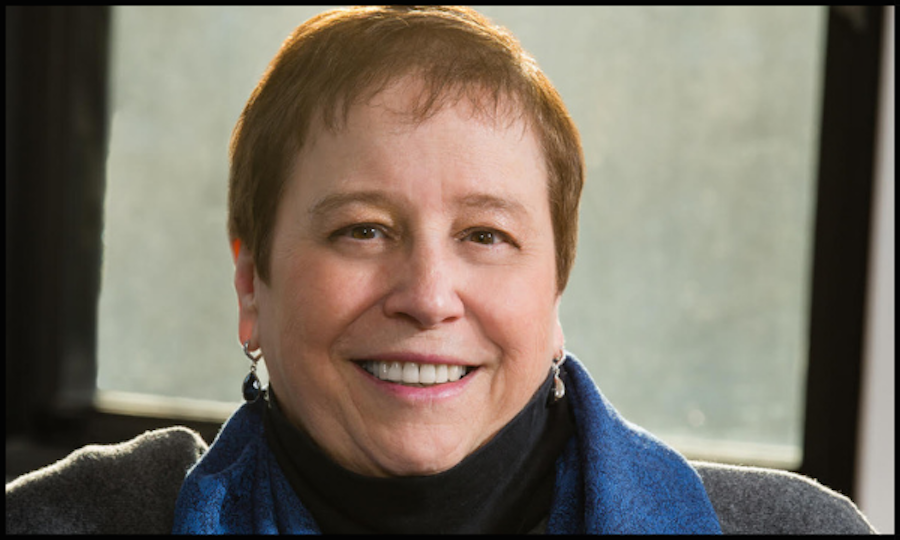Why Perfectionism Isn’t Nature’s Way

With over 3.8 billion years of experimentation, nature has many lessons to teach us about life, leadership and creating environments in which every organism, including humans, will thrive. And yet as individuals, we often have thought patterns that contradict nature’s lessons and trip us up over and over again – like the belief that perfection is a worthy goal.
I’m not sure why or when being perfect first settled into my own consciousness as a desirable expectation, but it hindered the quality of both my personal and professional life. It took decades before I realized perfection was unattainable and ultimately gave up its pursuit. In the end, it was my study of nature as a map for business models and leadership practices that helped me understand why perfection as a goal is actually a flat out dead end.
Human beings and nature exist in the context of an external environment that is in constant motion. The speed and complexity of this dynamic world continues to accelerate, causing problems to mutate and adding layers of unexpected variation. Perfection, however, requires an environment that is static and highly controlled. Trying to achieve that state is like trying to stop nature from growing and evolving – our lives simply cannot work that way successfully, at least not for long.
Another reason why perfection cannot exist in nature is that in nature, everything is unique. Perfection assumes universality – that once achieved it can be applied everywhere. To be perfect in nature is an oxymoron because any organism has to adapt to the context of its constantly changing environment. It cannot become “perfect” and stay in that state. At a minimum, it wouldn’t thrive and most likely it wouldn’t even survive.
Ultimately when we hold tightly to the ideals of perfection, we set ourselves up to experience the frustration, self-judgement and exhaustion of an unattainable, unrealistic goal. The rules of nature are that it evolves, changes and adapts. Living systems like nature are changing and adapting constantly. Striving for perfection in our dynamic world is actually a relentless, dysfunctional pursuit.
Listening to the lessons from nature has helped me, and the leaders I work with, fight the constant urge to be perfect. Here are just a few ideas to help you on this path to a more natural state of being:
- Make the decision to let go of the pursuit of perfection. Perfectionism is often an unconscious belief with massive impacts on our behavior. The first step is to examine where you may be setting perfection as a “reasonable” goal – and convince yourself to move beyond it.
- Focus on evolving. Nature, like all living systems is about learning. And as we learn, we evolve. We live in a world that is constantly changing. The best path to a fulfilling life is to keep pace with that change. If our world is dynamic, then we should be dynamic too. Ask yourself whether the goal is to be perfect or to be evolving. They cannot co-exist.
- Adapt to the best fit. Instead of static perfection, nature adapts in an infinity loop that is a continuous cycle of exploring, launching, sustaining, releasing and of course – failing. This cycle has served nature beautifully for 3.8 billion years. This is what Darwin meant when he named his theory “survival of the fittest.” It wasn’t survival of the “most perfect,” it recognized those that were constantly adapting were the ones that were thriving – because they were the “best fit.”
- Experiment and fail forward. Shift your language away from perfection and toward experimentation. That means embracing failure as part of innovation, and celebrating mistakes as a natural part of your path moving forward. We never see nature as having “failures”, but rather experimenting on a path of constant evolution. Your end goal should be a state of constant adaption to your changing environment.
To put it bluntly, nature hates perfection. Perfection is only achieved in a static environment full of control and lacking change. In a living system it represents dysfunction, not an ideal goal. As humans, just like in nature, we are living systems for whom perfection is not something that serves our most fulfilling state. We must let go of perfection and instead, learn from nature as we shift our life goals toward experimentation, learning, adaptation and constant evolution.
Dr. Kathleen E. Allen is the author of Leading from the Roots: Nature Inspired Leadership Lessons for Today’s World (2019) and President of Allen and Associates, a consulting firm that specializes in leadership, innovation, and organizational change. She writes a blog on leadership and organizations that describes a new paradigm of leadership based on lessons from nature and living systems at kathleenallen.net
This essay was featured in the March 31st edition of The Sunday Paper, Maria Shriver’s free weekly newsletter for people with passion and purpose. To get inspiring and informative content like this piece delivered straight to your inbox each Sunday morning, click here to subscribe.
READ MORE STORIES THAT MOVE HUMANITY FORWARD
READ MORE STORIES THAT MOVE HUMANITY FORWARD
SIGN UP FOR MARIA’S SUNDAY PAPER



